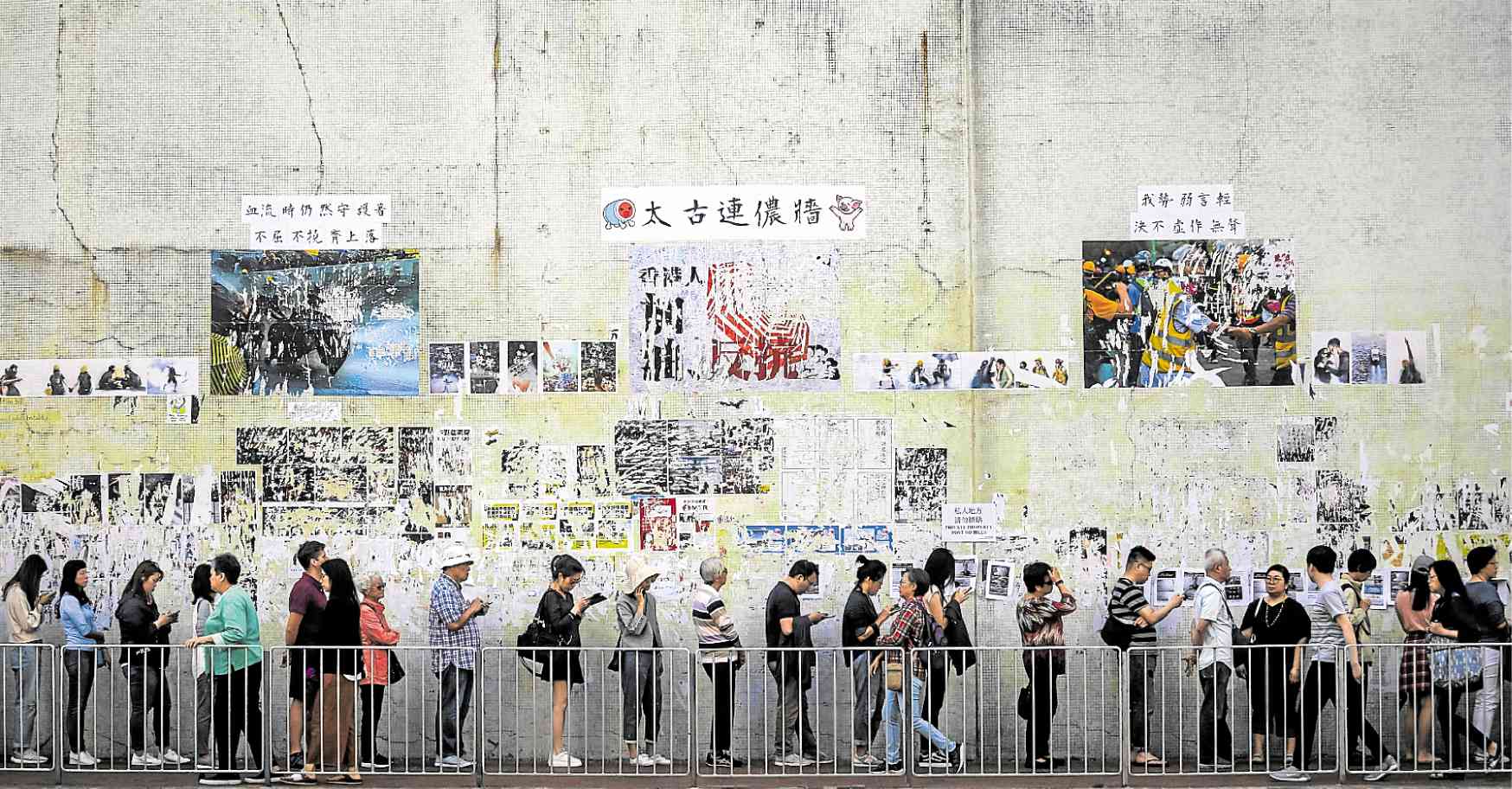
A VOICE IN THE COUNCIL Hong Kong voters on Sunday queue in front of protest posters-adorned “Lennon Wall” in Tai Koo, turning out in huge numbers to choose 452 district councilors in the hope of shaking the status quo and giving fresh momentum to the democracy movement. —AFP
HONG KONG—Voters turned out in high numbers on Sunday for district council elections that the city’s prodemocracy movement hopes will add pressure on the Beijing-backed government to hear their demands.
Hong Kong has been buffeted by months of mass rallies and violent clashes pitting police against protesters agitating for greater democracy in the Chinese territory.
The poll to choose 452 councilors handling community-level concerns like bus routes and garbage collection has traditionally generated little excitement but takes on new importance with this year’s unrest.
The councils have long been dominated by the city’s pro-Beijing bloc, and voters seeking change said they hoped that weakening the establishment’s grip would give fresh momentum to the democracy movement.
“I hope this ballot can increase our voice in the council,” said 19-year-old student Michael Ng, a first-time voter. “Even though one ballot can only help a little, I still hope it can bring change to society and support street protests in some way.”
Long queues formed at polling stations and the government said turnout in the first two hours was triple the rate seen during the previous district council polls in 2015.
A record 4.13 million citizens have registered to vote—more than half the population of 7.3 million and an increase of nearly 400,000—in polls that are the closest that Hong Kongers get to direct representation.
Referendum
Some analysts say the high turnout could help the prodemocracy camp, which is calling the polls a referendum on Chief Executive Carrie Lam and the pro-Beijing government.
But the polls are not entirely symbolic: some candidates for next year’s legislative elections will be drawn from district councilors, and the councils also will contribute 117 members to the 1,200-strong Beijing-controlled electoral college that chooses the chief executive.
Protests have been muted in recent days after prodemocracy figures urged citizens to avoid disruption so as not to prompt the government to delay the polls.
Police were deployed at some polling stations and on city streets, but the presence was not particularly heavy.
No violence or other disturbances were reported in early polling.
“Facing the extremely challenging situation, I am pleased to say … we have a relatively calm and peaceful environment for (the) election today,” Lam said after voting in her constituency on Hong Kong island.
Wider calls
The political unrest kicked into high gear with huge rallies in June against a bill backed by Lam that would allow extraditions to China’s opaque justice system.
The bill was eventually withdrawn amid defiant protests, but the movement snowballed into wider calls for democracy and investigations into alleged police brutality against demonstrators.
The district polls remain the city’s freest. On the other hand, members of the city’s legislature are elected by a mix of popular vote and industry groups stacked with Beijing loyalists.
Analysts expect prodemocracy candidates to see gains in the district councils but still fall well short of a majority of the 452 seats.
Political bitterness has infected the campaign, with one prodemocracy candidate having his ear bitten off in an attack, while 17 other candidates of all stripes—some seeking reelection—have been arrested over protest-related activities.
Election authorities also banned democracy activist Joshua Wong from running in the district poll for backing Hong Kong “self-determination.” —AFP